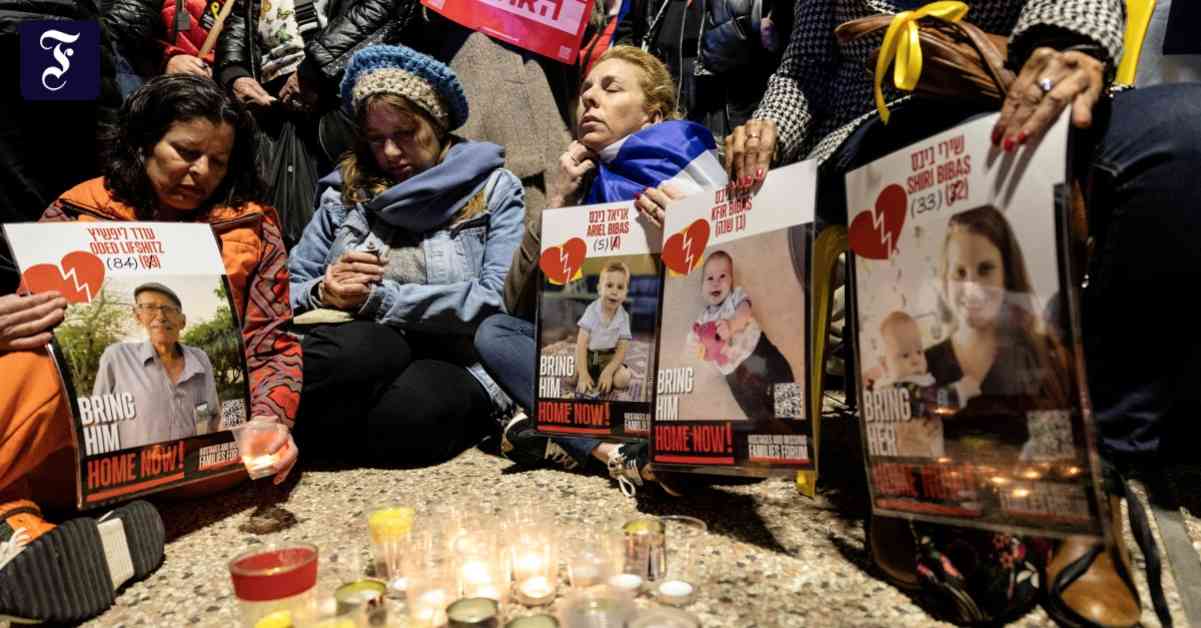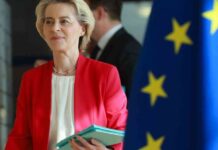Israel identifiziert Kinderleichen nach Geiselübergabe
Eine tragische Entwicklung erschüttert die Region: Die Hamas hat im Gazastreifen die sterblichen Überreste von vier Menschen an das Rote Kreuz übergeben. Die Zeremonie in Khan Yunis wurde live im Fernsehen übertragen, und Israel steht nun vor der schwierigen Aufgabe, die Identität der Leichen zu überprüfen, die laut Hamas tote Geiseln sein sollen.
Emotionen und Kontroversen
Die Szene am Übergabeort war von starken Emotionen und Kontroversen geprägt. Die Hamas hatte eine Bühne errichtet, auf der vier schwarze Särge aufgebahrt wurden. Umgeben von jubelnden Schaulustigen und vermummten Islamisten in Uniformen, die zu lauter Musik feierten, war im Hintergrund ein Bild des israelischen Ministerpräsidenten Benjamin Netanjahu als Vampir zu sehen, begleitet von den Bildern der getöteten Geiseln. Eine israelische Moderatorin bezeichnete die Darstellung als „Theater des Terrors“.
Die Medienberichte aus beiden Lagern deuten darauf hin, dass unter den Toten eine Mutter und zwei Kleinkinder sind, die auch die deutsche Staatsbürgerschaft besitzen. Das Schicksal von Schiri, Ariel und Kfir Bibas, die bei einer Entführung nach einem Massaker im israelischen Grenzgebiet ums Leben kamen, ist noch immer nicht zweifelsfrei geklärt. Videoaufnahmen der verängstigten Mutter und ihrer beiden Söhne gingen um die Welt, und nun steht eine forensische Untersuchung der Leichen bevor, die einige Zeit in Anspruch nehmen könnte.
Unsicherheit und Trauer
Während die Hamas behauptet, die drei seien bei israelischen Bombardements getötet worden, gibt es aus israelischer Sicht noch keine abschließende Bestätigung für ihren Tod. Offizielle Stellen äußerten große Sorge um das Schicksal der Familie Bibas, und der Vater der Kinder, Jarden Bibas, der kürzlich freigelassen wurde, äußerte bei seiner Rückkehr nach Israel tiefen Schmerz: „Unglücklicherweise ist meine Familie nicht zu mir zurückgekehrt. Mein Licht ist immer noch dort (im Gazastreifen), und solange sie dort sind, ist hier alles düster.“
Die traurige und tragische Geschichte der Familie Bibas berührt die Herzen vieler Menschen und verdeutlicht die schrecklichen Auswirkungen des Konflikts in Nahost. Während die politischen Spannungen weiterhin hoch sind und die Suche nach Frieden eine große Herausforderung darstellt, bleibt die Hoffnung auf einen Weg zu einer dauerhaften Lösung bestehen.









